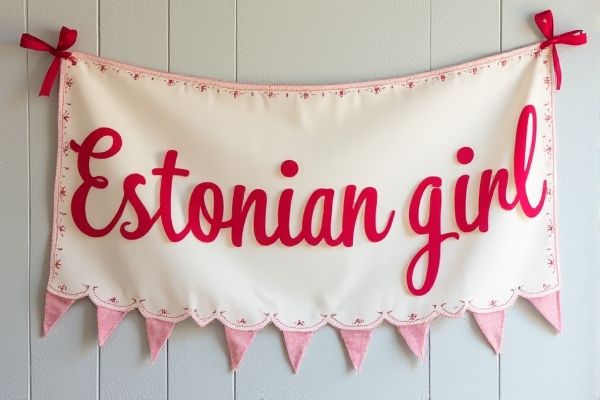When choosing a Shinto name for a boy, focus on names that convey deep cultural and spiritual significance. Such names often embody characteristics of nature, virtues, or elements associated with Shinto beliefs and practices. Delve into names that reflect harmony, traditional values, and the essence of the divine.

Traditional Shinto Names for Boys
In Japanese culture, traditional Shinto names for boys often symbolize virtues, nature, and important historical figures, often incorporating kanji such as "ta" (great), "yuki" (courage), and "kazu" (harmony). Names like "Hiroshi" (broad, extensive) or "Takeshi" (warrior, military) reflect a connection to natural elements and embody traits admired in traditional society. Many Shinto names are passed down through generations, highlighting values of familial honor and cultural continuity.
| Name Ideas | Name Meaning |
|---|---|
| Haruki Tanaka | Radiant Spring Tree |
| Riku Nakamura | Land of the Middle Village |
| Souta Yamamoto | Big and Talented |
| Hiroshi Kobayashi | Generous Forest |
| Daiki Suzuki | Great Radiance |
| Ryuuji Watanabe | Dragon Master |
| Yuki Saito | Snowy One |
| Kaito Matsumoto | Ocean Flying |
| Ren Takahashi | Lotus Tall Bridge |
| Shouta Fujimoto | Big and Magnificent |
Unique Shinto Baby Boy Names
Kiyoshi, meaning "pure" or "holy," captures the essence of tranquility and spiritual clarity in Shinto belief. Haruto embodies the "sun's brightness" combined with "soaring" or "flying," reflecting the reverence for nature's energy and the divine connectivity within Japanese culture. Renowned for the association with the divine wind, Jinpachi symbolizes "benevolent wind," a name that conveys the fortitude and protection attributed to Shinto kami, or spirits.
| Name Ideas | Name Meaning |
|---|---|
| Haruto Yamato | Sunlight; Big, Great |
| Ren Takashi | Lotus; Noble, Prosperous |
| Sora Kaito | Sky; Ocean Flying |
| Yuki Haru | Snow; Spring |
| Ryota Saito | Refreshing; Talented |
| Kai Sho | Ocean; Rise, Ascend |
| Daiki Kuro | Great Radiance; Black |
| Riku Yamazaki | Land; Mountain Cape |
| Haruki Natsuki | Spring; Summer Moon |
| Hikaru Tatsuya | Radiance; Dragon Persistence |
Popular Shinto Names for Boys
Sora, meaning "sky," is a popular Shinto name for boys, embodying vastness and limitless potential. Haruto, combining the meanings "sun" and "soar," symbolizes brightness and ambitious pursuits, often associated with energy and vitality. Ren, translating to "lotus," carries connotations of purity and spiritual growth, reflecting inner strength and resilience.
| Name Ideas | Name Meaning |
|---|---|
| Haruto Tanaka | Sunlight, soaring |
| Soma Nakamura | Reason, truth |
| Kaoru Yoshida | A fragrant, fragrant dream |
| Yuma Watanabe | Calm, a true beauty |
| Riku Suzuki | Land, to enjoy |
| Isamu Fujimoto | Courage, bravery |
| Kaito Mori | Sea, ocean flying |
| Shota Yamamoto | Flying, thick |
| Tsubasa Saito | Wings, flight |
| Ren Onishi | Lotus, love |
Shinto-Inspired Boy Names
Hikaru, meaning "light" or "radiance," evokes a sense of illuminating presence and is associated with purity and brightness in Shinto beliefs. Kaito, combining "kai" (ocean) with "to" (soar or fly), captures the essence of freedom and harmony with nature, reflecting the Shinto reverence for the natural world. Haruto, embodying "spring" with "soar," suggests renewal and growth, aligning with Shinto themes of life cycles and harmony with the environment.
| Name Ideas | Name Meaning |
|---|---|
| Ren Takashi | Ren means "lotus" and Takashi means "noble" or "prosperous." |
| Kai Kaito | Kai means "ocean" and Kaito means "ocean flying." |
| Sora Hiroshi | Sora means "sky" and Hiroshi means "generous" or "prosperous." |
| Haruto Yuuma | Haruto means "sunlight" and Yuuma means "elegant" or "dream." |
| Daiki Renji | Daiki means "great glory" and Renji means "wise and compassionate." |
| Yuki Haruto | Yuki means "snow" or "happiness" and Haruto means "spring." |
| Riku Masaki | Riku means "land" or "shore" and Masaki means "a tree of purity." |
| Isamu Ryota | Isamu means "brave" and Ryota means "refreshing." |
| Toshiro Masato | Toshiro means "talented" and Masato means "righteous." |
| Kenshin Haru | Kenshin means "truth" and Haru means "spring" or "sunshine." |
Shinto Names with Spiritual Meanings for Boys
In Shinto tradition, Koichiro symbolizes immense inner strength and harmony, resonating with the sacred spirits known as kami. Hayate represents swift, graceful movement akin to the divine wind that carries spiritual importance, embodying qualities of agility and protection. Takumi denotes exquisite craftsmanship and divine creativity, reflecting a deep connection to spiritual artisanship and the kami's inspiration in artistic pursuits.
| Name Ideas | Name Meaning |
|---|---|
| Haruki Takumi | Springtime radiance and artisan |
| Riku Sho | Land of tranquil peace |
| Renjiro Kaito | Lotus second son; sea person |
| Sora Kiyoshi | Sky; pure and clear |
| Tsubasa Yuuto | Wings; superior warrior |
| Daiki Yuto | Great radiance; gentleness |
| Asahi Hiroki | Morning sun; vast tree |
| Kaito Haru | Ocean flying; spring |
| Yuki Haruto | Snow; sunlight |
| Isamu Ryo | Bravery; refreshing |
Ancient Shinto Boy Names
Haruto, meaning "sunlight" or "clear," resonates with the divine presence and purity in Shinto beliefs, encapsulating the idea of a radiant beginning. Kaito, combining "kai," meaning "ocean," and "to," meaning "person," reflects a connection to nature, embodying the sacred relationship between humanity and the elements revered in Shinto traditions. Jiro, translating to "second son," historically signifies not only familial importance but ties to the spiritual concept of continuity and tradition in Japanese culture.
| Name Ideas | Name Meaning |
|---|---|
| Haruki Sora | Spring Child of the Sky |
| Renjiro Takumi | Lotus Second Son, Artisan |
| Kaito Yoshi | Ocean Flying, Lucky |
| Souta Hiroshi | Sudden, Thick/Plentiful |
| Riku Masaru | Land, Excellence |
| Daiki Haruto | Great Radiance, Sunlight |
| Yuuji Kaida | Heroic Second Son, Dragon |
| Shouta Taro | Outstanding, First-born Son |
| Seiji Yoshito | Political Second Son, Good Person |
| Kazuki Yuta | Peaceful Radiance, Gentle |
Nature-Inspired Shinto Names for Boys
Kazuki symbolizes "harmony tree," encapsulating the graceful balance of nature and spirituality found in Shinto beliefs. Haruto, translating to "sunlight soaring", reflects the radiant energy and life-giving essence akin to sunlight breaking through ancient canopies. Daiki embodies "great tree" or "great brightness," suggesting a robust and expansive spirit rooted deeply in wisdom and the natural world.
| Name Ideas | Name Meaning |
|---|---|
| Haruki Tanaka | Radiant Tree |
| Sora Fujimoto | Sky or Heaven |
| Kaito Yamamoto | Ocean Flying |
| Riku Nakamura | Land or Shore |
| Haru Takahashi | Spring Tall Bridge |
| Yuki Saito | Snow Wisteria |
| Ren Yoshida | Lotus or Love |
| Hikaru Suzuki | Radiance or Light |
| Tsubasa Kobayashi | Wings or Feathers |
| Ryo Hayashi | Refreshing Forest |
Shinto Names Reflecting Spiritual Heritage for Boys
Shinto names for boys often draw inspiration from nature, spirituality, and traditional Japanese elements, embodying a deep connection to Shinto beliefs and practices. A name like "Haruto," meaning "sunlight" or "spring person," reflects the reverence for nature and the cycles of life core to Shinto, while "Raiden," meaning "thunder and lightning," signifies a powerful spiritual presence tied to the kami, or spirits, revered in Shintoism. Names such as "Daiki," which can mean "great tree," emphasize a solid and grounded spiritual heritage and are intended to bestow qualities of strength and endurance upon the bearer, aligning with ancestral traditions and the natural world.
| Name Ideas | Name Meaning |
|---|---|
| Haruki Takahashi | Spring Child from the Tall Bridge |
| Renjiro Saito | Two Healing Sons |
| Kaito Nakamura | Ocean Flying from the Middle Village |
| Sora Fujimoto | Sky Wisteria Base |
| Riku Yamamoto | Land Base of the Mountain |
| Tsubasa Hoshino | Wings of the Star Field |
| Daiki Suzuki | Great Radiance of the Bell Tree |
| Asahi Mori | Morning Sun in the Forest |
| Yuki Kobayashi | Snowy Small Forest |
| Kenshin Iwata | Strong Heart of the Rock Rice Field |
Sacred Shinto Names for Boys
In the realm of Shinto, sacred names for boys often embody the essence of nature and divine attributes, with names like "Kaito" (Hai Dou ) meaning "ocean fly," symbolizing freedom and boundless exploration, or "Haruto" (Yang Xiang ), translating to "sun flying," representing warmth, light, and auspicious journeys. The name "Daichi" (Da Di ) reflects the grandeur of the earth, emphasizing stability, strength, and nurturing qualities cherished in Shinto beliefs. Additionally, names such as "Ryota" (Liang Tai ), combining "cool" and "great," denote an ideal of calmness and excellence, encapsulating the harmonious balance between natural elements and spirit revered in Shintoism.
| Name Ideas | Name Meaning |
|---|---|
| Haruki Tanaka | Radiant tree |
| Riku Yamamoto | Land of the mountains |
| Kaito Fujimoto | Ocean flying |
| Ren Sato | Lotus blossom |
| Yuki Nakamura | Snow village |
| Daiki Suzuki | Great radiance |
| Taito Watanabe | Greatly flying |
| Sora Takahashi | Sky bridge |
| Akira Kudo | Clear and bright |
| Shinobu Hoshino | Endurance star |
Mythological Shinto Boy Names
Raiden, the god of thunder and lightning, represents power and energetic force, often depicted as a mighty, drumming deity. Susanoo, known as the storm god, embodies bravery and unpredictability, holding deep connections with the sea and storms. Tsukuyomi, the moon god, signifies serenity and mystery, associated with night, introspection, and the passage of time.
| Name Ideas | Name Meaning |
|---|---|
| Haru Kaito | Spring sea; a name symbolizing rebirth and adventure. |
| Yuki Tsukuyomi | Snow and moon; representing purity and calmness. |
| Ren Daiki | Lotus and greatness; a name that embodies resilience and strength. |
| Riku Fujin | Land and wind; a name reflecting harmony with nature. |
| Toru Raijin | To soar and thunder god; representing power and freedom. |
| Kaito Nari | Ocean flying and noise; symbolizing communication and exploration. |
| Haruto Inari | Sunlight and rice deity; a name of prosperity and growth. |
| Asahi Susanoo | Morning sun and storm god; balancing energy and nature. |
| Sora Amaterasu | Sky and sun goddess; representing brightness and hope. |
| Takumi Hiko | Skillful and boy; embodying craftsmanship and young spirit. |
Shinto Ceremonial Names for Boys
Shinto ceremonial names for boys often emphasize auspicious qualities and nature, drawing inspiration from concepts like strength, purity, and harmony. Names such as "Haruto," meaning sunlight, and "Daichi," denoting great wisdom, are common, reflecting both spiritual and elemental connections found in Shinto belief systems. These names not only serve as personal identifiers but also encapsulate cultural values and ancestral honor, often selected during significant religious rites to invoke divine blessings and ensure a prosperous future.
| Name Ideas | Name Meaning |
|---|---|
| Haruto Nakamura | Sunny or spring and village |
| Renji Takahashi | Water lily and high bridge |
| Sora Yoshida | Sky and righteous rice field |
| Kaito Suzuki | Ocean flying and bell tree |
| Daiki Tanaka | Great radiance and rice paddy |
| Riku Yamamoto | Land and base of the mountain |
| Hayato Fujimoto | Falcon person and wisteria origin |
| Takumi Watanabe | Skillful and crossed river |
| Yuki Matsumoto | Snow and pine origin |
| Kojiro Saito | Little one and pureness |
Powerful Shinto Names for Baby Boys
Haruto," meaning "sunlight" or "spring," embodies a radiant and energetic essence often associated with growth and vitality. "Ryuu" signifies "dragon," representing strength, courage, and a revered mythical presence in Shinto beliefs. "Takeshi" translates to "warrior," reflecting a bold and courageous spirit, deeply rooted in the tradition of honor and valor.
| Name Ideas | Name Meaning |
|---|---|
| Haruki Takahashi | Radiant tree height |
| Kaito Yamamoto | Ocean flying person |
| Renjiro Nakamura | Lotus boy; one who brings joy |
| Soshin Watanabe | Clear mind; enlightened spirit |
| Daichi Fujimoto | Great land; earth's strength |
| Tadashi Saito | True, loyal; precise person |
| Hiroshi Suzuki | Generous and prosperous |
| Masaru Tanaka | Victory; excellence |
| Yuki Matsumoto | Snow or happiness; superior person |
| Riku Sakamoto | Land; strength from the earth |
Shinto Names with Cultural Significance for Boys
Shinto names often carry deep cultural significance, embodying traits and virtues revered in Japanese tradition. Names such as "Haruto" combine "haru" meaning sun, light, or clear weather, with "to," symbolizing a person, suggesting brightness and positivism. Another example, "Daiki," melds "dai" for great, powerful, or large, with "ki," representing a valuable tree or hope, thus reflecting aspirations for strength and prosperity.
| Name Ideas | Name Meaning |
|---|---|
| Haruto Yamamoto | Sunlight; clear weather, mountain origin |
| Sota Nakamura | Hearty, thick; large rice paddy, village |
| Renjiro Takahashi | Lotus; a second son; tall bridge |
| Taiga Watanabe | Large river; to reach a river |
| Kaito Fujimoto | Ocean flying; wisteria origin |
| Riku Matsumoto | Land; the pine tree origin |
| Yuma Suzuki | Calm; truth; bell tree |
| Hayato Kobayashi | Falcon; small forest |
| Daiki Yamaguchi | Great radiance; mountain entrance |
| Sora Tanaka | Sky; rice field |
Rare Shinto Names for Boys
Among rare Shinto names for boys, "Itsuo" holds a deep cultural significance, meaning "a long life" and associated with traditional Japanese blessings. Another unique option is "Tatsuhiko," combining the elements of "dragon" (tatsu) and "boy" (hiko), invoking imagery of strength and mythical spirits. Additionally, "Suijin," referencing the Shinto god of water, embodies a connection to natural elements and the revered kami, promising protection and harmony.
| Name Ideas | Name Meaning |
|---|---|
| Kaito Yamato | Ocean flying, great harmony |
| Haruto Akira | Sunlight, bright and clear |
| Ryota Shiro | Refreshing, white, calm |
| Sota Mizuki | Big, thick, and beautiful moon |
| Renjiro Takumi | Lotus, second son, artisan |
| Yuki Haru | Snow, spring, bright |
| Hikaru Naoki | Radiance, honest tree |
| Daiki Asa | Great glory, morning |
| Jiro Yoshinori | Second son, righteous, principles |
| Riku Hoshino | Land, starry field |
Shinto Names Symbolizing Strength for Boys
Shinto names for boys often draw inspiration from natural elements, powerful deities, and historical figures symbolizing strength and resilience. Names like Daiki, meaning "great glory," or Takeshi, translating to "warrior," evoke images of unmatched courage and robust spirit. Other popular choices include Haruto, which blends elements for "sun" and "soar," representing immense inner strength and ambition akin to the sun's unwavering ascent.
| Name Ideas | Name Meaning |
|---|---|
| Ren Takumi | Ren means "lotus" symbolizing resilience, and Takumi means "artisan" symbolizing skill and strength. |
| Haruki Soma | Haruki means "spring child," symbolizing rebirth and energy, while Soma means "to possess strength." |
| Kaito Masaru | Kaito means "ocean flying," indicating adventurous spirit, and Masaru means "to excel" or "to be victorious." |
| Ryuu Jirou | Ryuu means "dragon," a symbol of power, and Jirou means "second son," often associated with nobility. |
| Takeshi Hiroshi | Takeshi means "warrior" symbolizing strength and courage, and Hiroshi means "generous" or "abundant." |
| Ginjiro Ken | Ginjiro means "silver second son," implying value and rarity, while Ken means "strong" or "healthy." |
| Daiki Katsu | Daiki means "great radiance," symbolizing brilliance and strength, and Katsu means "victory." |
| Masashi Renji | Masashi means "elegant" or "refined strength," while Renji means "to join" or "to link," suggesting unity in strength. |
| Shinobu Haruto | Shinobu means "to endure," conveying inner strength, and Haruto means "sun flying," symbolizing brightness and hope. |
| Yuki Riku | Yuki means "snow" or "happiness," symbolizing purity, while Riku means "land," representing stability and strength. |






Comments